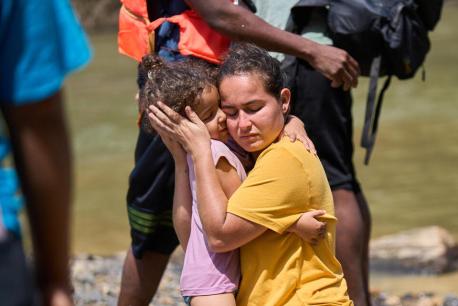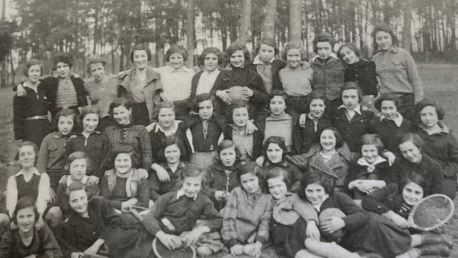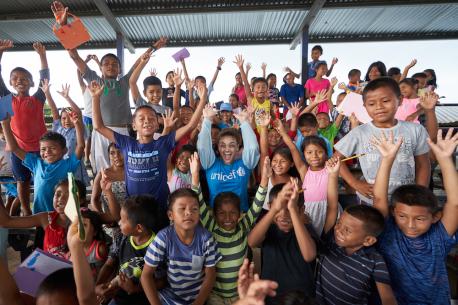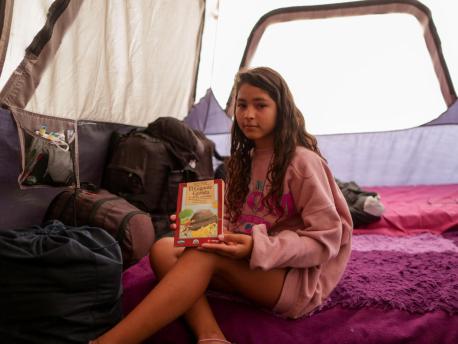
Education Support for Children On the Move From Venezuela
Thirteen-year-old Valeria's education was disrupted when her family left Venezuela. UNICEF is helping her get back on track.
It was springtime when 13-year-old Valeria's mother told her they were leaving Venezuela to join her father, who was working in Colombia. "When my mom told me we were going to travel, I felt sad," Valeria recalls.
She pulled all the stuffing out of her favorite stuffed animals so she could fit them in her bag, and set off with her mother and her little brother in search of a better life.
The family crossed the border to Colombia, then continued on foot and by truck with Valeria's dad on a trek through Ecuador and Peru. Finally, almost a year later, they reached Chile. "During that whole time, I was unable to study," Valeria says.
Valeria, 13, shares her story:
Childhood interrupted for children in transit
Deteriorating conditions in Venezuela — rising crime, spiraling inflation, a lack of essential services — have pushed more than 7 million people out of the country. Six million are being hosted across South America.
"When children have been walking with their families for a long time, getting on trucks, crossing borders, they spend a lot of time out of school, unable to complete their studies. A learning lag starts to develop," says Francisca Morales, a UNICEF Education Officer in Chile.
UNICEF and partners help migrant children and adolescents every step of the way
UNICEF works with partners to provide migrant and refugee children and adolescents with the educational support they need to get back on track, along with other critical humanitarian interventions including child protection, health and nutrition support, and water, sanitation and hygiene (WASH) services.
In Chile, UNICEF teams help newly arrived students integrate into local public schools. "Our education system still has capacity for them, but needs to develop emotional mechanisms to include them, not just opening the door, but really making them feel a part of it," says Morales. "They come with that expectation, and they're willing to contribute."
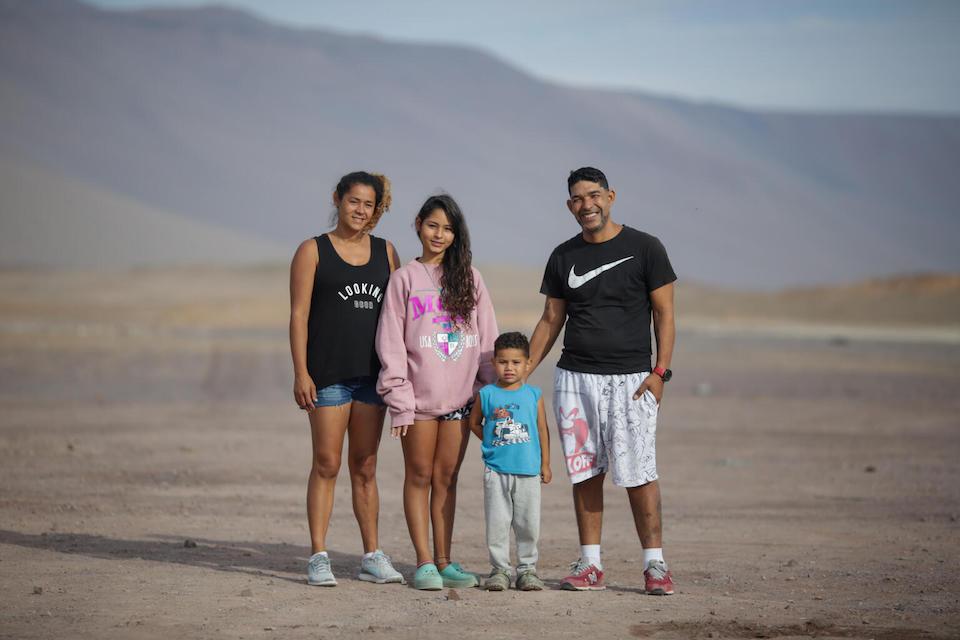
After a long journey from Venezuela, 13-year-old Valeria, in pink, her mother, father and 3-year-old brother, Adriel, are staying in a UNICEF-supported transit center for families on the move in Playa Lobitos, Iquique, northern Chile. © UNICEF/UN0652415/Vera-Lisperguer/AFP-Services
At a UNICEF-supported humanitarian camp for families in transit in Iquique, northern Chile, Valeria is happy to be in class again. She works with a teacher who visits the camp three days a week to help the young residents catch up on their studies. It's the first step toward a feeling of belonging in her new home.
"I love my classes, when the teacher teaches us things," Valeria says. She's reading a book of stories by Oscar Wilde, a gift from her teacher, and thinking about becoming a lawyer or a veterinarian one day. Most of all, she's looking forward to making some new friends.
In 2023, UNICEF plans to reach 183,900 children on the move from Venezuela with access to formal or nonformal education, including early learning. Your contribution will help children regain a sense of normalcy and resume their childhoods. Please donate.
With reporting by Valentina Bastías
HOW TO HELP
There are many ways to make a difference
War, famine, poverty, natural disasters — threats to the world's children keep coming. But UNICEF won't stop working to keep children healthy and safe.
UNICEF works in over 190 countries and territories — more places than any other children's organization. UNICEF has the world's largest humanitarian warehouse and, when disaster strikes, can get supplies almost anywhere within 72 hours. Constantly innovating, always advocating for a better world for children, UNICEF works to ensure that every child can grow up healthy, educated, protected and respected.
Would you like to help give all children the opportunity to reach their full potential? There are many ways to get involved.



